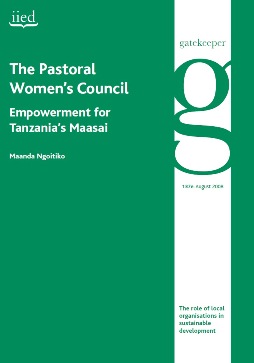Focal point
Location
Mission
Our mission is to build a fairer, more sustainable world, using evidence, action and influence in partnership with others.
Who we are
IIED is one of the world’s most influential international development and environment policy research organisations. Founded in 1971 by economist Barbara Ward, who forged the concept and cause of sustainable development, we work with partners on five continents. We build bridges between policy and practice, rich and poor communities, the government and private sector, and across diverse interest groups. We contribute to many international policy processes and frameworks, including the Intergovernmental Panel on Climate Change, the Millennium Ecosystem Assessment and the UN conventions on climate change and biological diversity.
What we do
IIED carries out research, advice and advocacy work. We carry out action research — generating robust evidence and know-how that is informed by a practical perspective acquired through hands-on research with grassroots partners — and we publish in journals and maintain high research standards. We advise government, business and development agencies, and we argue for changes in public policy. We focus on bottom-up solutions, stay open to flexible, adaptable solutions and are marked by a tradition of challenging conventional wisdom through original thinking.
Resources
Displaying 301 - 305 of 367Land and decentralisation in Senegal
Land and decentralisation policies in Senegal have been closely linked since independence in 1960. Public lands are currently managed by the local governments of municipalities and rural communities, with the latter responsible for the land and natural resources in unprotected parts of their territory, and the former empowered to issue building permits.
Information on land: a common asset and strategic resource. The case of Benin
This paper presents the legal framework and methods of producing information about land in Benin, and looks at the complex modalities of determining, recognising and ‘translating’ rights in rural and urban areas (the Rural Land Plan and Urban Land Registry). It provides observations on several current issues, particularly the political and administrative decentralisation that is fundamentally changing the country’s institutional landscape.
Land Reform and Rural Territories: Experiences from Brazil and South Africa
Despite programmes for rural land reform and redistribution around the world, inequitable land distribution and rural poverty remain profound in much of the rural South. Suggests a new approach to land reform and rural development. ‘Rural territorial development’ is based on and encourages shared territorial identity (distinctive productive, historical, cultural and environmental features) amongst different stakeholders and social groupings. Builds on the fact that rural people’s livelihood strategies are complex and often mostly non-agricultural in nature.
Browsing on fences: pastoral land rights, livelihoods and adaptation to climate change
This paper presents an overview of pastoral systems and addresses rights issues around access and control of resources in the context of climate change.
The Pastoral Women’s Council: Empowerment for Tanzania’s Maasai
The Pastoral Women’s Council (PWC) is a community-based organisation established in 1997 in Tanzania. It was founded to promote the development of Maasai pastoralist women and children by facilitating their access to education, health, social services and economic empowerment. It seeks to address women’s marginalisation in patriarchal Maasai culture, as well as the poverty among the Maasai that has long been underpinned by land access restrictions for pastoralists, hunters and gatherers.






